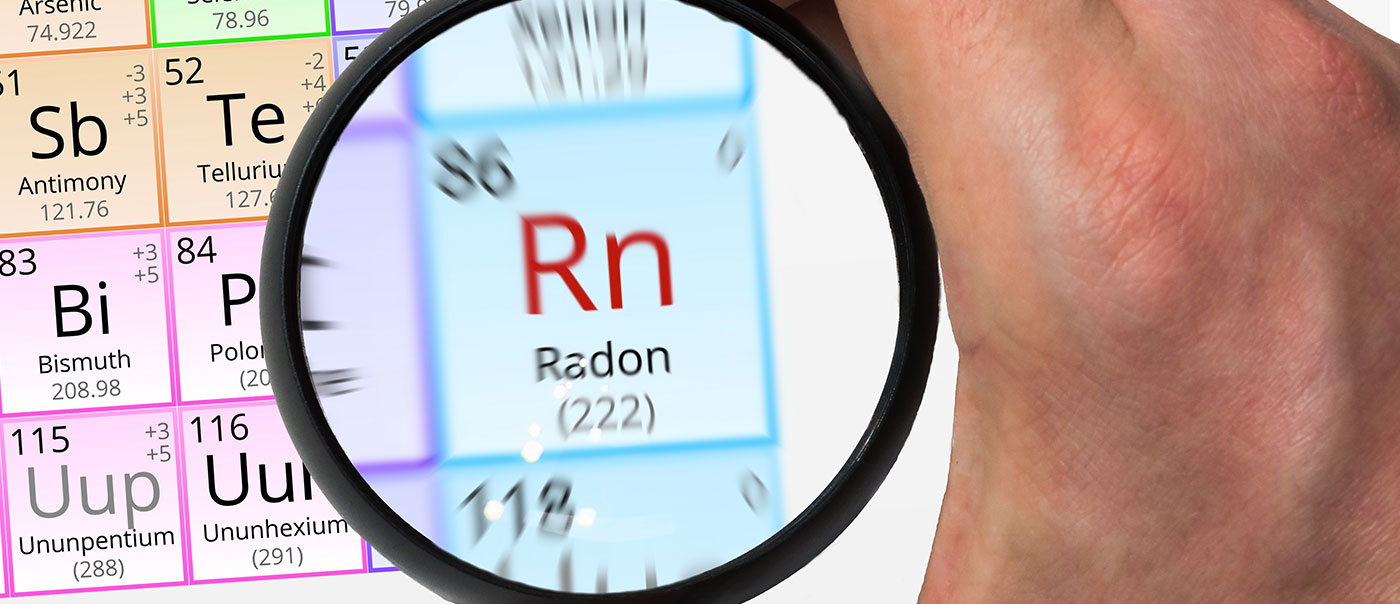The following blog post was written based on information provided by Health Canada.
You may not have heard of it but radon is a part of your life. As a REALTOR®, why should this matter to you?
Radon, a radioactive gas that is odourless, colourless and tasteless, is produced by the breakdown of uranium found in sediment (soil), rocks and water. When radon is released into the atmosphere it gets diluted and poses a negligible risk to human health. However, if radon accumulates inside a home, it can pose a serious health risk.
November is Radon Action Month in Canada, which is why we’ve put together these four facts every REALTOR® and homeowner should know about radon:
- Radon is present in all homes. You can’t see it, smell it or taste it. It enters via cracks in the foundation walls and/or floor slabs or other openings including window casements and floor drains. Radon levels also vary significantly across the country.
[bctt tweet=”You can’t see it, smell it or taste it but radon is present in all homes. #RadonActionMonth #CREACafé ” username=”CREA_ACI”]
- It’s easy to test your home’s radon levels. Testing is an important element of responsible home ownership. Health Canada recommends homeowners use a long-term test conducted over a minimum of three months. You can visit takeactiononradon.ca/test to find a radon test kit or certified professional near you.
[bctt tweet=”The fall and winter months are the best time to test for radon. #RadonActionMonth #CREACafé ” username=”CREA_ACI”]
- The Canadian guideline for radon is 200 Bq/m3. If high radon levels are detected, they can be reduced. Radon mitigation techniques are not only effective, but can also protect the value of your home. For example, when radon gas is extracted from beneath a building, it also removes moisture and other unwanted gases that may be present.
[bctt tweet=”A 3-month radon test is more representative of average exposure than shorter tests. #RadonActionMonth #CREACafé ” username=”CREA_ACI”]
- Certified professionals can help with mitigation. If you wish to hire a contractor to help you determine the best approach to reducing radon levels in your home, Health Canada recommends a radon mitigation professional that has been certified under the Canadian National Radon Proficiency Program (C-NRPP). Homeowners should always get estimates, ask questions and check references before selecting a radon professional.
[bctt tweet=”Radon mitigation costs depend on how the gas enters & moves within the home. #RadonActionMonth #CREACafé ” username=”CREA_ACI”]Your clients may ask you questions about radon when buying or selling their home. Remember, Health Canada recommends homeowners use a long-term test as it more accurately identifies an annual average exposure level. Be sure to share our newly revamped publication A Homeowner’s Guide to Radon and tap into national social media conversations on radon by using the hashtag #RadonActionMonth. Let’s take action on radon!




